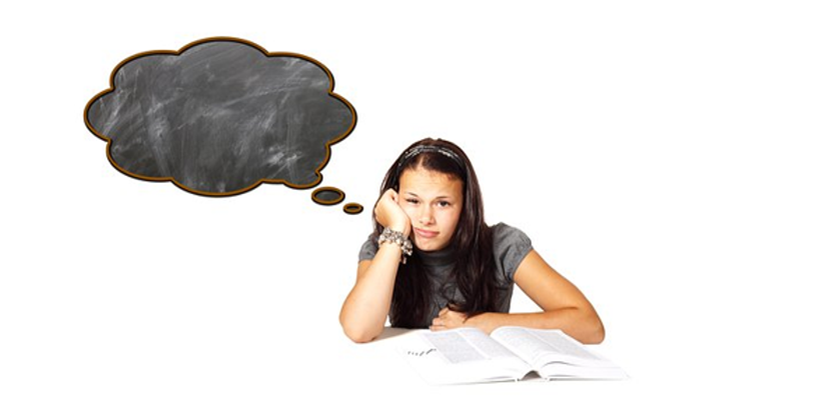
Today the average American spends over 10 hours each day on digital media activities. Approximately two-thirds (67%) of our precious time is spent on the net – on our smart phones or computers, or both. We have become digital slaves.
Pedestrians texting on smart phones while walking on sidewalks or even crossing busy streets is all too common a scene in most cities. The all too familiar dash to the laptop as soon as we enter our home is playing havoc with our brain.
Yes, it is a busy world, more so it is a noisy world. Useless information intrudes our thoughts and vies for attention in our brain, no matter how short the time. There is no rest for our brain.
It is good to resist the urge to pick up that message, to check our emails, to plug in earbuds walking in the forest. By not responding to the digital tools, we give our brains a chance to rest and reset. You are probably familiar with the sense of pressure to always be busy and productive, but the cost of choosing a busy and productive life is the loss of important inner reflection.
According to research by Gloria Mark, a professor of informatics at the University of California, Irvine,
“About ten years ago, we found that people shifted their attention between online and offline activities about every three minutes on average. But looking at more recent data, and we’re finding that people are shifting every forty-five seconds when they work online.”
This isn’t just a productivity or focus issue. Professor Mark’s lab has found that the more people switch their attention, the higher their stress level. It is well known that higher stress is a creativity killer.
The problem is that we try to eliminate every moment of boredom in our lives with mobile devices. Today being busy has become a status symbol and a mark of prestige. When we do that, it shuts down our mechanism for deeper thinking. Someone said that “obsessed on your phone is like eating junk food.” We tend to think of boredom as the exact opposite of productivity, but leading neuroscientists are starting to believe that boredom is the secret source that can achieve 10 times of creative potential.
Dr. Teresa Belton of the University of East Anglia (in England) researched the role of boredom in creativity. She concluded:
“For the sake of creativity perhaps we need to slow down and stay offline from time to time.”
Nature of Boredom
She made the observations that boredom is often associated with solitude. Dr. Belton’s researches see boredom as an essential aspect of life. “Boredom becomes a seeking state,” says Texas A&M University psychologist Heather Lench. “What you’re doing now is not satisfying. So, you’re seeking, you’re engaged.”
The fact that neural networks expand and diversify during bouts of boredom suggests that human beings are hardwired to create, design, imagine, invent, and develop new thoughts, ideas, stories, music, and arts. A 2014 study in the Journal of Experimental Social Psychology found that bored people “are more likely to engage in sensation seeking.” This may be because boredom can inspire “lateral thinking”—a form of engaging your mind to seek a more creative solution to the problem at hand. Your brain has a resting state, which scientists call as the “default mode.” Default mode is like the screensaver on your computer.
Many of our best ideas come to us during idle moments, such as while commuting to work, or taking a shower or a long walk. In fact, we may be at our most creative when we are bored. When we daydream, we tap into our subconscious. Our subconscious is much freer. It is this ability to fully access our knowledge, memories, experiences, and imagination that helps lead us to those precious “lightbulb” moments when we least expect them. Studies using MRI brain scans have shown that the connections between different parts of our brains increase when we are daydreaming compared to during focused thought.
In a Harvard Business Review, writers Scott Barry Kaufman and Carolyn Gregoire note that while it’s common for our brain to space out and lose focus on a task from time to time, it isn’t laziness; rather, it’s a natural default mode that the brain goes into in order to recuperate. And this is where the magic happens. Spending every second of every day engaged in some type of action absolutely kills your creativity.
Why is creativity so important?
Two experts from the Foundation for Critical Thinking, Dr. Richard Paul and Dr. Linda Elder, report that creativity has been linked with critical thinking, two factors that “are inseparable aspects of excellence in thought.” In layman’s terms, it means that when you’re creative, you become a better problem solver. You’re also able to think “outside of the box” and come up with more innovative ways to do things.
It also involves using your newfound “bored time” with having nothing to do but daydream and letting your mind wander wherever it wants to go. It’s letting yourself be bored so you can finish important, potentially life-changing questions or statements.
In today’s digital world most people are exposed to hundreds or even thousands of ads a day. We need moments of silence to explore the contents of our own minds in order to develop our inner worlds. It’s been estimated that it takes 10,000 hours of deliberate practice to become an expert at anything. During those 10,000 hours, there will be times when you feel bored with what you’re doing. This is the moment your creative power blooms.
Boredom ignites creativity. We are born to be creative more than anything else. The intuitive moment is the core of our life. Nurture your natural power.
